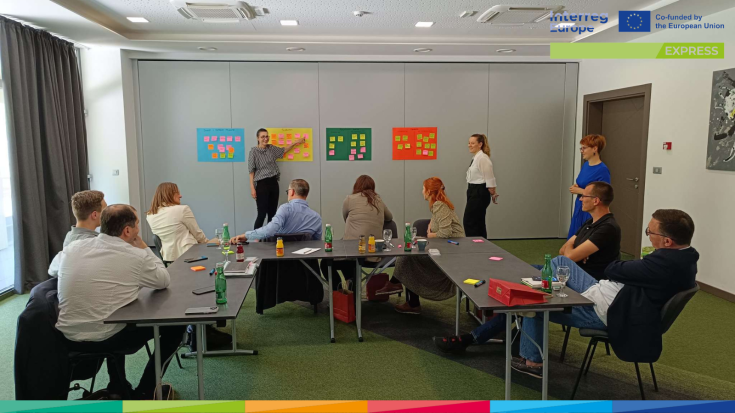Croatia | Insights into the energy sufficiency of the region

In an inspiring environment, the team from PI REDEA presented the EXPRESS project to the participants, which was followed by the working part - SWOT analysis and mapping of the energy sector.
Stakeholders of the EXPRESS project in Croatia are sectoral agencies (Međimurje Energy Agency Ltd., Regional Energy North), research institute (Energy Institute Hrvoje Požar), local and regional government (Međimurje County, Town Prelog), private sector and civil society organizations (Society for Sustainable DevelopmentDesign – DOOR, AAT Geothermae Ltd.) and public sector companies (HEP Group – national energy company, Croatian Chamber of Economy, The Environmental Protection and Energy Efficiency Fund).
Working in groups and with the open discussion we made a SWOT analysis of energy sufficiency for the northern Croatia.
|
STRENGHTS |
WEAKNESSES |
|
|
|
OPPORTUNITIES |
THREATS |
|
|
SWOT analysis will be a useful tool and a starting point for northern Croatian Regional context assessment in which we will analyze the current energy sector operational environment, sources of energy (renewable and non-renewable), level of self-sufficiency, energy consumption, prospects and trends, biggest challenges, points of interest and good practice.
Our next stakeholder meeting will be after the completion of the Regional Contex Assessment.
